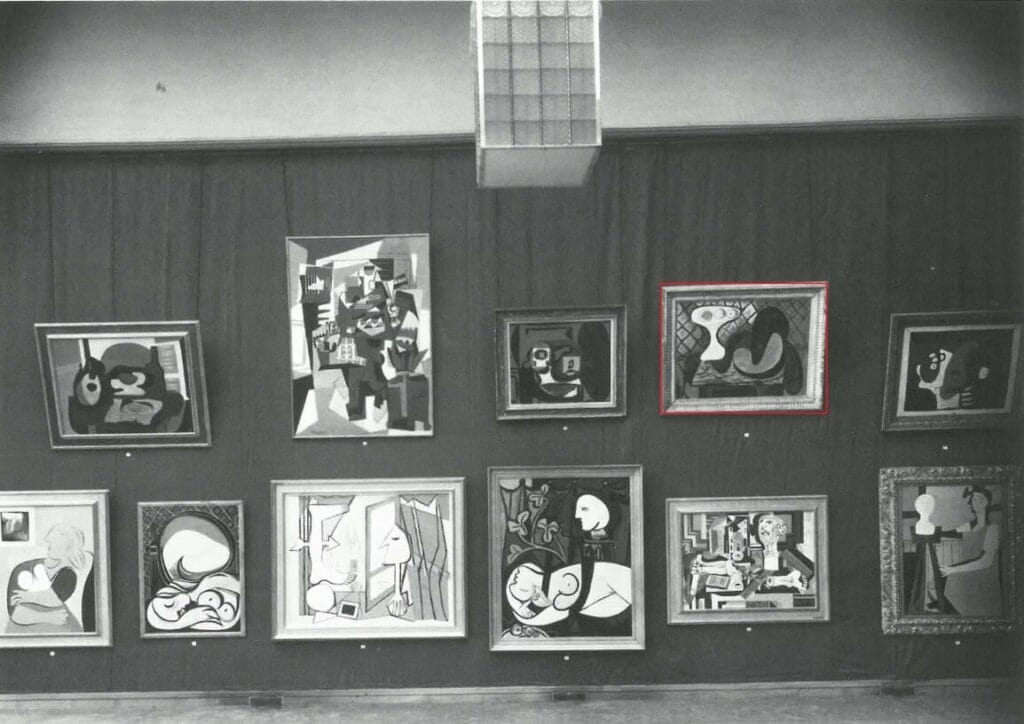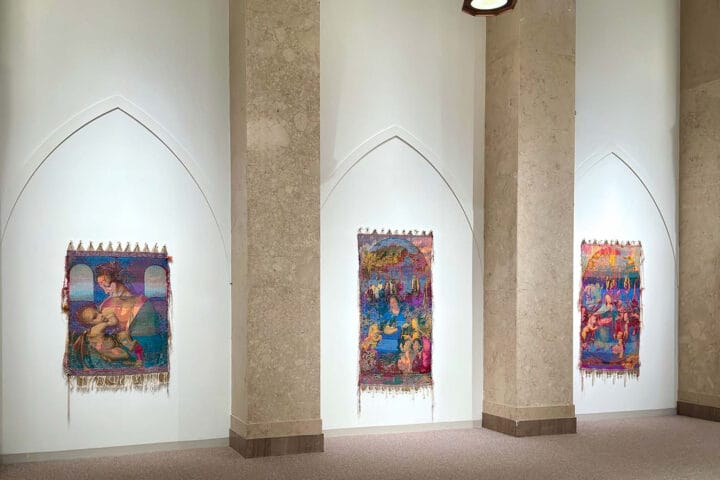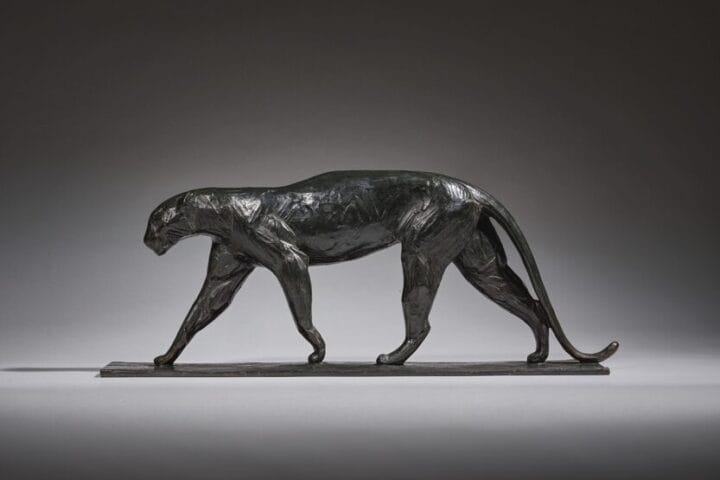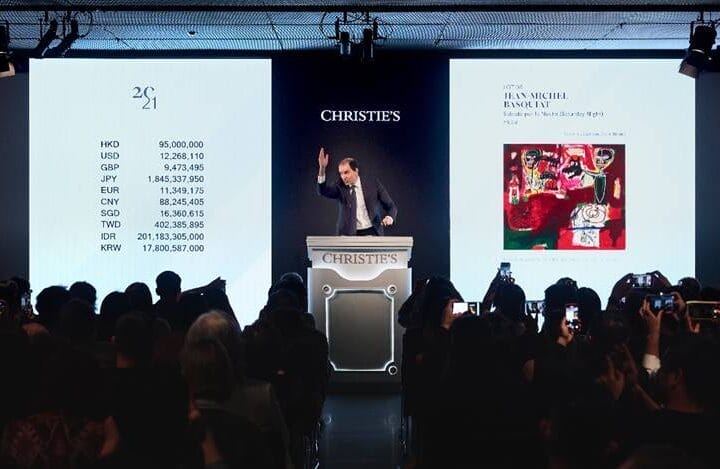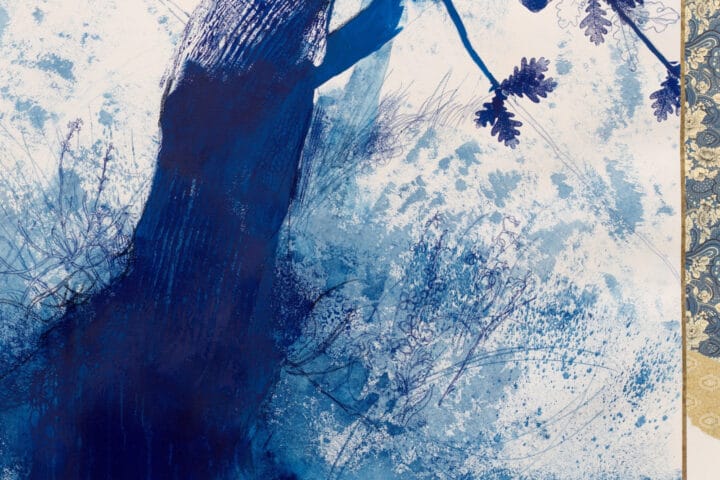“As the world celebrates and commemorates Picasso’s legacy, marking 50 years since his passing, Compotier et guitare stands out as one of his most significant expressions in still life painting. This genre was a vital component of Picasso’s artistic practice, providing a platform for showcasing many of his most daring artistic experiments. Created in 1932, during one of the most pivotal years of his life, this painting captures Picasso at a crucial moment both artistically and personally – the combination of which he portrays with virtuosic form in this work.”
Julian Dawes, Head of Impressionist and Modern Art in New York
NEW YORK 2 OCTOBER 2023 – This November, Sotheby’s Modern Evening Auction will feature one of Pablo Picasso’s most striking and unique still lifes, containing coded references to his famed “Golden muse,” Marie-Thérèse Walter, at a time when their clandestine affair, now going on for years, remained a secret. Painted in 1932, one of the most consequential years of his career, Picasso’s Compotier et guitare was completed the day before Valentine’s Day while in the throes of his secretive affair with Marie-Thérèse. It was not until later that year in June, with the opening of Picasso’s celebrated retrospective at the Galeries Georges Petit in Paris, that their affair would become public. Hand-selected by Picasso to star in this exhibition (the first and only time Picasso installed his own work), Compotier et guitare’s veiled portrait was exhibited alongside numerous portraits of Marie-Thérèse, announcing to the world that she was his muse and lover for the first time.
Appearing at auction for the first time in over 20 years, Compotier et guitare is estimated in the region of $25 million, placing it among the most valuable still life works by the artist to be offered at auction. It will be unveiled at Sotheby’s galleries in Hong Kong on 2 October, where it will be on view in Asia for the first time, as well as make its first exhibition appearance in more than 30 years.
“Compotier et guitare not only showcases Picasso’s mastery of color and form but also spotlights his deeply passionate affair with Marie-Thérèse Walter. With its vibrant palette, sensuous shapes, and shrouded references, this exceptional still life is a remarkable testament to Picasso’s deep love for his ‘Golden Muse.’”
Allegra Bettini, Head of the Modern Art Evening Auction in New York
Compotier et guitare, with its vivid blend of colors and highly sensual forms, defies the confines of traditional still-life art, symbolizing Picasso’s concealed connection with Marie-Thérèse – stemming from their chance encounter in 1927 when she was just seventeen. This relationship evolved into one of the most passionate love affairs in Picasso’s life, reaching its pinnacle in the year 1932, Picasso’s “annus mirabilis,” a defining year, when the artist would make some of his most prized works. Every canvas painted during this remarkable period bears the imprint of Picasso’s deep infatuation with his muse.
In Compotier et guitare, Marie-Thérèse’s presence is unmistakable, expressed through the flowing lines of the green drapery mirroring her form, the predominant use of a color palette featuring yellow and lavender, which became synonymous with her portrayal, and the alluring shape of the guitar on the right. While Picasso depicted a guitar in his work from as early as 1903, it was truly during the artist’s Cubist period that this object became a fundamental motif of his work. Linked to his Spanish heritage and infused with innate sensuality, its intricate figuration offered a rich tapestry of suggestive curves, the guitar was a versatile subject for Picasso’s interpretations, spanning his Blue Period through to his final works. Notably, Picasso’s 1919 painting, Guitare sur une table from the collection of William S. Paley, set a new record in November 2022 for an early still life, achieving $37.1 million at Sotheby’s.
Within the work we also see references to Picasso’s rival, Henri Matisse, evident in the diamond-patterned wallpaper, as well as in the curvature of the fruit bowl and guitar, reminiscent of Matisse’s reclining figures such as Odalisque couchée from 1926 (pictured below). In Odalisque couchée, the parallels between the languid repose of the woman and Picasso’s forms and shapes throughout Compotier et guitare further allude to Marie-Thérèse. The diamond wallpaper pattern in the background can also be observed in other significant works by Picasso from this period, including Girl Before a Mirror (The Museum of Modern Art, New York), also painted in 1932 , which depicts Marie-Thérèse.
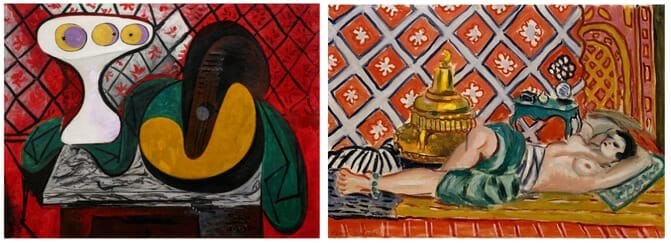
Three months after the work was completed, Picasso selected it for his first ever retrospective at the Galeries Georges Petit in Paris and the Kunsthaus Zürich. This exhibition comprised 238 works (225 paintings, pastels, and works on paper; 7 sculptures; and 6 illustrated books) which dated to Picasso’s arrival in Paris. The works on display marked a prescient shift, featuring Picasso’s most recent paintings alongside his most famous Cubist works, signaling an important transition.
Also offered at Sotheby’s this November, from the prestigious collection of Emily Fisher Landau, is Picasso’s Femme à la montre, created during the same year of 1932, just after the Galeries Georges Petit exhibition. In both works, we see an important shift in the manner in which Picasso depicted Marie-Thérèse, and when viewed together they offer a unique perspective in how she impacted his artistic output over time. Within one changeful year Picasso transitioned from covert portraits to a disarmingly open ode to his lover, offering remarkable insight into the ways in which the artist’s work shifted during his ‘annus mirabilis,’ proving himself to be a master of reinvention.
The two works will go on view together in Sotheby’s in Hong Kong beginning 2 October, the first time they have been brought together for public exhibition and the first time the works have been publicly exhibited in Asia.
